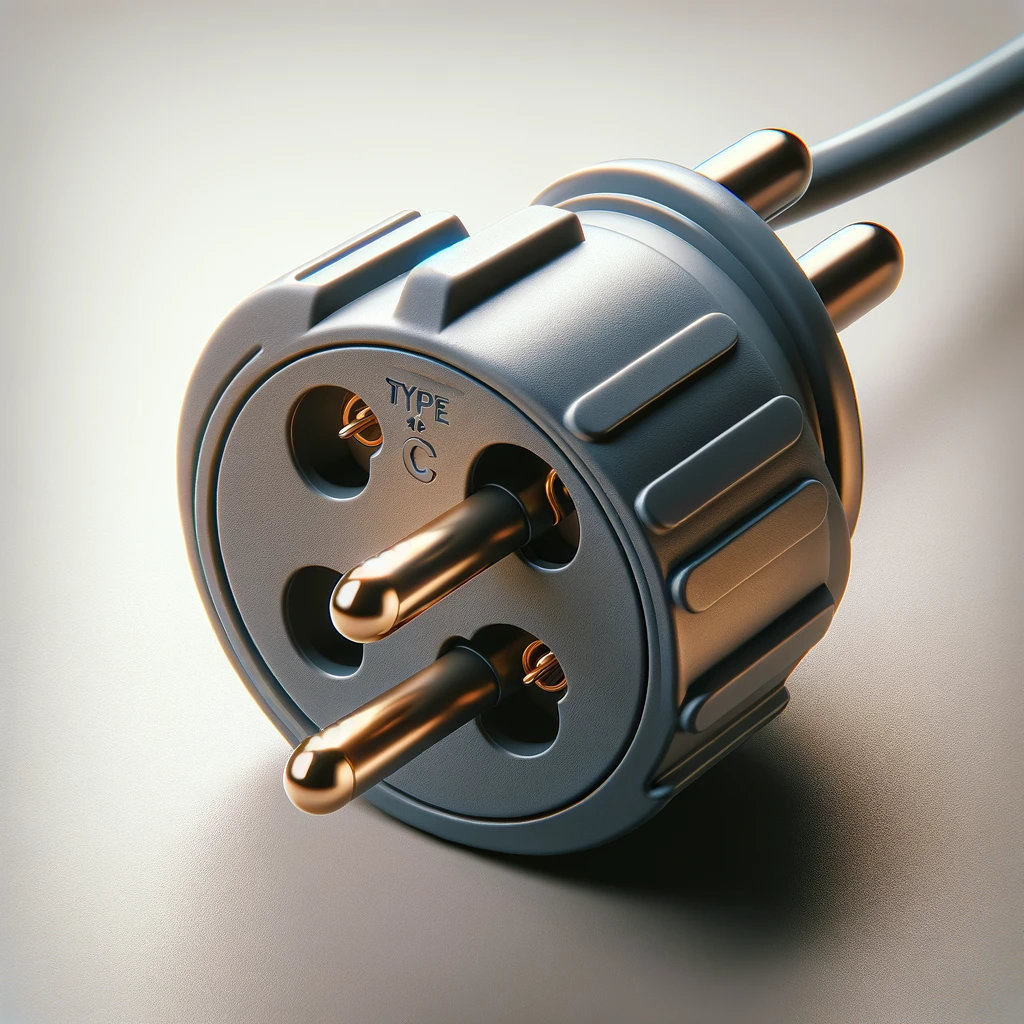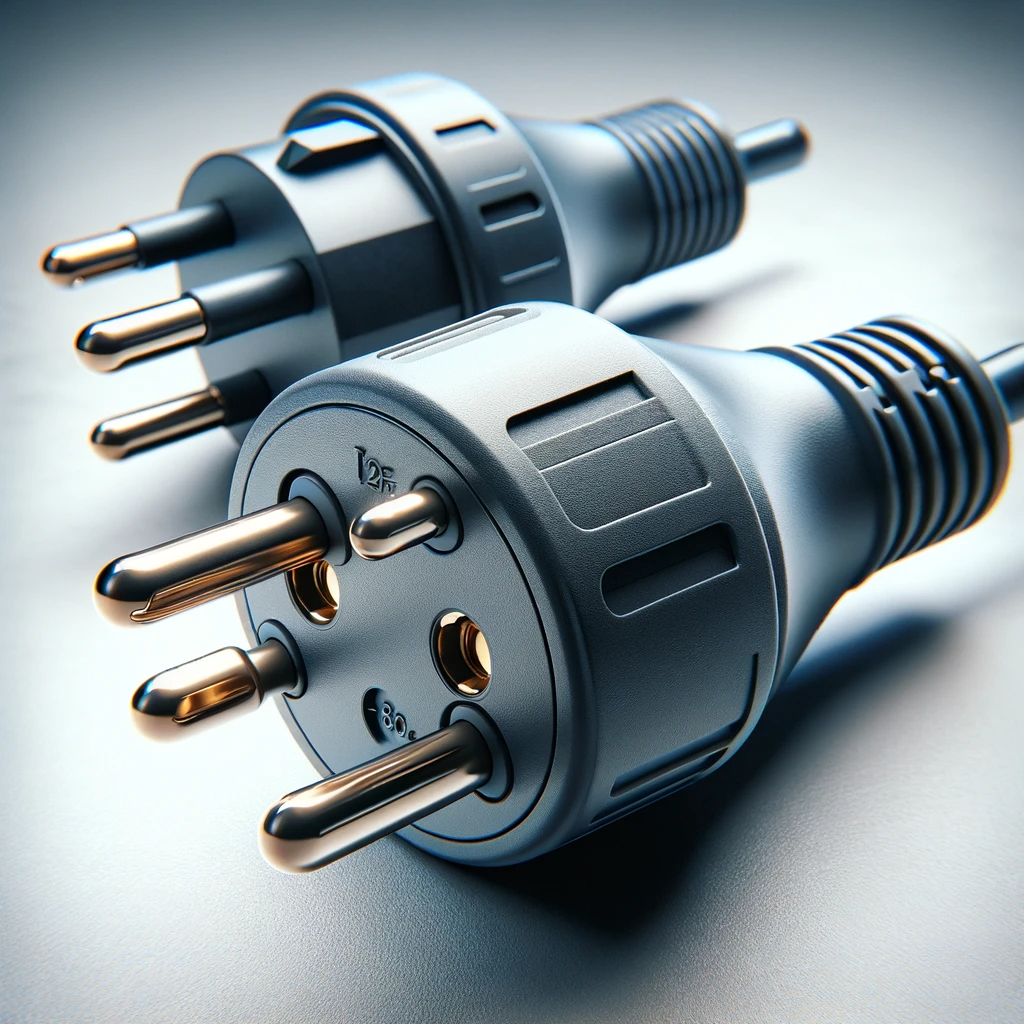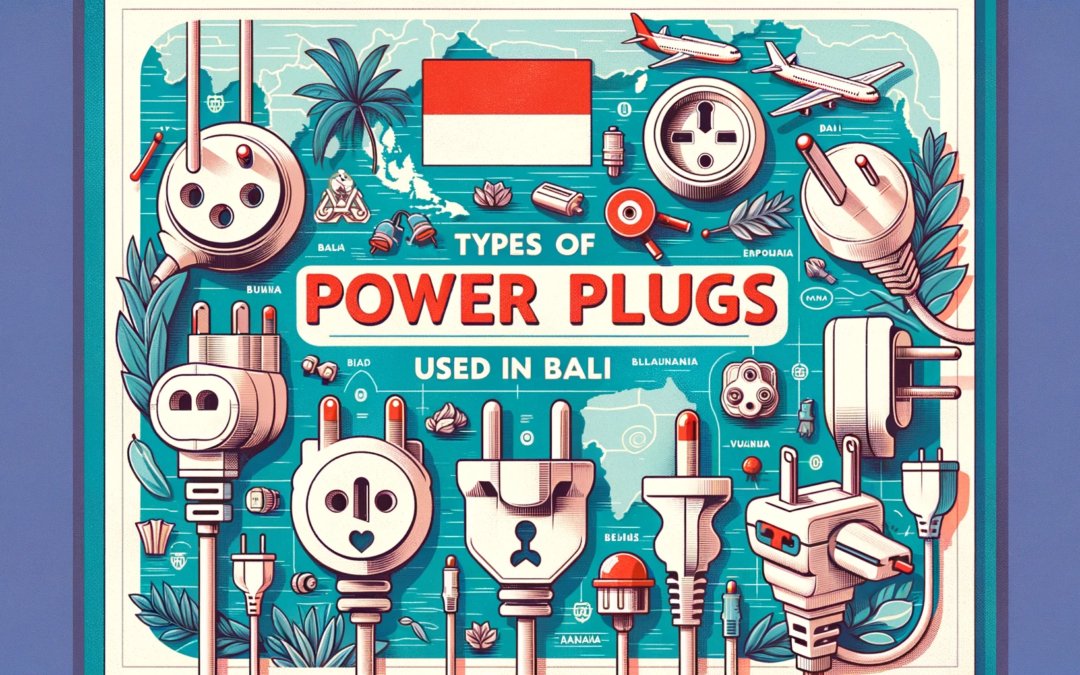Have you ever arrived at your Bali hotel room, jet-lagged after a long flight, only to realize with dread that your phone is about to die and your charger won’t plug into the wall outlet? Or tried using your hairdryer in your Balinese villa bathroom and blown a fuse? These frustrating scenarios are common for travelers who don’t understand Bali’s power plugs and voltage ahead of time.
But with a little preparation, you can avoid power-related disasters on your Balinese vacation and keep all your beloved devices charged up. This comprehensive guide will give you the lowdown on Bali plug types, voltage, adapters, and other key considerations to make the electrical side of your trip smooth sailing. Arm yourself with the right gear and knowledge so you can relax and immerse yourself in Bali’s rich culture without worrying about your electronics.
Whether you’re coming from Europe, the Americas, Australia, or elsewhere, we’ll cover exactly what you need to know. Read on to become a power plug pro before your feet even hit the black volcanic sands of Bali’s famous beaches!
Overview of Power Plugs in Bali
The predominant socket and plug types used in Bali are Types C and F. These are compatible with plug Types C, E, and F, which are standard in much of continental Europe. The voltage in Bali is 230V, with a frequency of 50Hz.
Travelers from North America, the UK, Australia, and some other regions will likely need socket adapters and possibly voltage converters to use their electrical devices in Bali. Those coming from Europe can often use their home plugs and devices without issue, provided the devices are rated for 230V.
Below we’ll explore the plugs and sockets in more detail, along with voltage, adapters, and other key considerations for keeping your devices powered up in Bali.
Type C Plugs

Type C plugs, sometimes called Europlugs, are the most widely used in Bali. They have two round pins and are compatible with Type C sockets.
The Type C Europlug design has several advantages:
- Compact size makes them ideal for travel
- Round pins allow rotation to fit in sockets
- Compatible with sockets in over 30 countries in Europe, Asia, and Africa
- No earth or grounding connection
Type C plugs meet European standards and have a standard diameter of 4.8mm per pin. They can handle up to 2.5 amps and 250V. Higher amperage versions are also available.
Some examples of places that use Type C sockets include Germany, Austria, the Netherlands, Spain, Greece, and Turkey. So travelers from these regions will likely not need adapters in Bali.
Type F Plugs

Type F plugs are also commonly found in Bali and Indonesia. These are sometimes called Schuko plugs.
The Type F plug has two round 4.8mm pins like Type C but also incorporates two grounding clips on the sides. These side clips fit into indentations on the Type F sockets to create a grounding connection.
The Type F plugs provide a few enhancements over Type C:
- Grounded connection for safety
- Side clips ensure firm, non-rotating connection
- Higher amperage capacity of up to 16A
- Used for high-power devices like hair dryers, irons
Countries that utilize Type F sockets include Germany, Austria, the Netherlands, and parts of Eastern Europe.
Voltage and Frequency
In addition to the physical plug shape, it’s crucial to check that your devices are compatible with the voltage and frequency used in Bali.
The standard voltage in Bali is 230V. The frequency is 50Hz.
Most laptop and phone chargers are designed to auto-adjust to voltages from 100V to 240V. But some appliances like hair dryers and straightening irons may need a voltage converter to avoid damage.
Ideally, you should check your device user manuals to confirm the input voltage range before using them in Bali. The voltage and frequency may also be printed on the device or charger.
Travel Adapters
Depending on your home country, you may need a travel adapter to physically connect your plugs to Bali’s Type C and F sockets.
Adapters are available that allow you to insert plugs from other countries and convert the shape to fit Indonesian sockets. They do not change the voltage, only adapt the physical plug.
Some examples of places that will need adapters include:
- USA and Canada – Type A and B plugs
- UK, Ireland, Malaysia, and Singapore – Type G plugs
- Australia and New Zealand – Type I plugs
Many hotels and villas in tourist areas can provide adapters upon request. But it’s often easier to carry your own. Universal adapters are available that work in over 150 countries.
Compatibility with European Plugs
One of the conveniences of Bali’s use of Type C and F sockets is that these plugs are compatible with what is used in much of continental Europe.
So if you are traveling from a European country that utilizes Type C, E, or F plugs, you likely will not need an adapter to use your devices in Bali. This covers most of the EU and Schengen Area countries.
The voltage is also the same 230V used across Europe, so most devices should run fine without converters. Just be aware that the UK and some other countries use unique plugs and voltages that would need adapting.
Socket Types in Bali
In addition to plug types, it’s helpful to be aware of the socket types you’ll encounter in Bali.
Type C sockets accept Type C plugs. They are ungrounded sockets with two round holes spaced 19mm apart. Type C sockets are prevalent in Bali and Indonesia.
Type F sockets have round holes spaced 19mm apart like Type C. But they also include two 4.5mm diameter holes on the sides to accept the grounding clips on Type F plugs. These sockets may be recessed into the wall.
Some sockets in higher-end hotels and resorts may also accept plug Types A, B, and G to accommodate international travelers. But Types C and F are the country’s standards.
Additional Tips and Information
Here are some other tips for preparing the right plugs and adapters for your electronics in Bali:
- The Europlug or Type C plug is suitable for use with most laptops, phone chargers, cameras, and other portable electronics.
- Type F adapters allow grounded connections for high-power devices like hair dryers.
- Universal adapters with multiple plug configurations make it easy to connect all your devices.
- Adapters are cheap so it’s wise to carry spares in case of loss or damage.
- Test adapters at home before your trip to ensure a snug fit and proper functioning.
- If you need a voltage converter, choose one with at least 25% more capacity than your device rating for optimal performance.
- Contact your hotel ahead of time to request an adapter at check-in if needed.
Summary
To summarize, Bali primarily uses Type C and Type F plugs and sockets operating on 230V, 50Hz power. Travelers from North America, the UK, Australia, and some other regions will require socket adapters and possibly voltage converters for their electrical devices. But those coming from continental Europe can often just bring plugs and devices as-is. Being aware of Bali’s power plug and voltage situation before traveling allows you to charge and use your electronics with ease.
Frequently Asked Questions
What types of plugs are used in Bali?
Bali uses Type C and Type F plugs, which have two round pins. Type F also has two grounding clips on the sides. These plugs are compatible with European-style Type C, E, and F sockets.
What voltage and frequency is used in Bali?
Standard voltage is 230V while the frequency is 50Hz in Bali. Most modern devices can handle 230V, but some appliances may need voltage converters.
Will my European plugs work in Bali without an adapter?
If your devices have Type C, E, or F plugs standard in Europe, they should plug right into Bali’s sockets without an adapter needed. The voltage is also the same.
Do I need a power plug adapter if traveling to Bali from the USA?
Yes, you will need a socket adapter to convert your Type A and B North American plugs to fit Bali’s Type C and F sockets. Voltage converters may also be needed.
What kind of power adapter is needed when traveling from Australia to Bali?
You will need an adapter to convert Australia’s Type I plugs. A universal travel adapter with Type I input and Type C/F output connections is recommended.
Can I use my hair dryer, straightener, or other high-wattage device in Bali?
You should check if your device can handle 230V. If not, you’ll need a voltage converter. Using Type F sockets or adapters provides a grounded connection for high power appliances.
Are plug adapters easy to find in Bali?
Some hotels provide adapters upon request, but it’s better to carry your own. Universal adapters can be purchased cheaply for use in over 150 countries.
Is a voltage converter necessary for devices like laptops and cell phones?
Most modern portable electronics can automatically adjust to 230V. But it’s best to check your device manual or labeling to be sure before using it in Bali.
What should I do if my device plug or voltage doesn’t match Bali’s power outlets?
You will need a travel adapter to change the plug shape and potentially a voltage converter if your device doesn’t support 230V. Electronics with adjustable 100-240V input are fine.
How can I use my grounded Type B plug devices in Bali?
A Type B to Type F adapter will allow you to connect the grounded Type B plugs to Bali’s Type F grounded sockets. You may also need a voltage converter.
What type of outlets provide the best safety?
Type F grounded sockets and adapters add an extra level of safety, especially for high wattage appliances. Never force an incompatible plug into a socket – use proper adapters.

